Angella Nazarian is an Iranian-born American academic, non-fiction best-selling author, noted speaker and philanthropist living in Los Angeles with her husband and sons.
Angella is the co-founder and President of VISIONARY WOMEN, a non-profit women’s leadership organization in Los Angeles that brings together some of the most dynamic thought leaders in the country for in depth conversations. She is also the co-founder of LOOKING BEYOND, a charitable organization that promotes awareness and creates advancement and enrichment for children with disabilities.
A professor of Psychology and faculty member at Mount Saint Mary’s College, California State University Long Beach, and Los Angeles Valley College for eleven years, Angella has been conducting workshops and seminars on topics related to women’s personal growth and innovation and leadership, and has been a keynote speaker at various national events and conferences including the YPO-WPO Global Leadership Conference in Los Angeles and the YPO Women’s LEAN IN Conference in Miami. Angella has also presented the Commencement addresses for Brentwood School and Archer School for Girls.
Angella has lead panels at the Milken Global Conference on Visionary Women Entrepreneurs and Visionary Women in Social Enterprise. She served as a delegate at Newsweek & The Daily Beast’s Women in the World conference and was a speaker for the World Leadership Forum in Mexico City.
All three of her books published with Assouline have become bestsellers, and have garnered glowing reviews from Arianna Huffington, Tina Brown, Martha Stewart, Diane von Furstenberg and Ambassador Melanne Verveer.
Her first book, 'Life as a Visitor” chronicles her departure as an 11 year old child from Iran and her life as a refugee in California. Her second book 'Pioneers of the Possible: Celebrating Women of the World' is a collection of essays about forward-thinking revolutionary female figures such as Ella Fitzgerald, Frida Kahlo, Simone de Beauvoir, Wangari Maathai, and Zaha Hadid...
Her latest book 'Visionary Women', highlights the lives of twenty other female luminaries of modern times such as Hellen Keller, Maya Angelou, Marie Curie and the youngest Nobel Prize laureate Malala Yousafzai. These women demonstrate passion, fearlessness, and an insatiable curiosity that led each to harness her talents and achieve her goals, no matter how improbable.
Angella Nazarian graduated (Summa Cum Laude) with a BS in Psychology from UCLA and earned her graduate degree (Summa Cum Laude) in Industrial/Organizational Psychology from California State University, Long Beach. More can be found about Angella Nazarian on her website: ANGELLA NAZARIAN.
Angella NAZARIAN interviewed by Florian DAVID and Lina DAUGIRDAITE.
Florian DAVID: You studied psychology to understand human nature. There is a quote I truly love by the Dalai Lama, which goes something like: 'Man surprised me most about humanity. Because he sacrifices his health in order to make money. Then he sacrifices money in order to recuperate his health. And then he is so anxious about the future that he does not enjoy the present or the future; he lives as he is never going to die, and then dies having never really lived.'
As far as you are concerned what do you find most astonishing about human nature?
Angella NAZARIAN: It is astonishing that we trick ourselves into thinking that we will live forever— so we tend to postpone real living. I recently travelled to India and a 91 year-old woman gave me this piece of advice: “I do not get mad anymore. You know why? Because life is short and it is not worth it!” Here is a person who is facing her mortality and all her priorities have shifted.
DAVID: You do often stress how important knowing yourself is. You had the pleasure to meet and interview acclaimed Artist Marina Abramovic, for whom 'If we do not change our mind we can't change the word'...When did you personally come to that realisation, and what does knowing yourself mean to you?
NAZARIAN: I came to the first-hand realization how my thoughts affect my perception of the world in my late twenties, when I was grieving over a miscarriage. I knew that if I were to take responsibility for my own happiness, I would also need to take a closer look at myself and the way I perceive my circumstances. Change in the world happens one person at a time!
To me knowing myself is an open-ended journey. Each year, new experiences bring new opportunities for learning and growth. We all change and our needs change as well. So, the process of self-reflection is ongoing throughout our lives.
DAVID: You are a big fan of social entrepreneur Jacqueline Novogratzwho says that 'Listening is often the first leadership step in our work with others and in our own hearts'. You have always been fascinated by the lives of others as a conduit towards your own self-understanding. We'd love to know, what is the most recent thing that you have learned about yourself, Angella Nazarian?
NAZARIAN: This year, I purposefully wanted to slow down and see how it feels not be juggling so many projects at the same time. For a person who thrives on focus and “getting this done” it was a big shift in lifestyle. My year of “slow living” has been not only restorative and but also productive! The time I put aside for exploration brought so many rich experiences my way. To top it off, I noticed that I did my work more joyfully.
DAVID: What your Grandmother told you in this dream you made once as a child is truly astonishing and gives a bit of a metaphysical vertigo: 'You are the heir to many unlived lives. This is the legacy you carry in the cells of your body. Don't shrink away from life. Live generously. Have the chutzpah to give birth to your many selves'. This is truly an extraordinary calling, how old were you and are your dreams always so vivid and so meaningful?
NAZARIAN: Not all my dreams have been as vivid, but I can tell you that I put a lot of importance in recalling my dreams and interpreting them. As a matter of fact, I participated in a Jungian dream analysis group for close to 2 years. There have been certain dreams that served as sign posts for my life and the one I included in the book was certainly one.
Lina DAUGIRDAITE: “Who knew when I was a little girl living in Iran, that I would one day go around the world, have a meaningful and exciting vocation, and meet so many people along the way? Who knew? And the icing on the cake is that I have these loving, incredible men in my life (my boys and my husband of nearly 28 years) supporting me. Now it makes all the madness of the days all worth it and then some!” This is a paragraph from your inspiring blog on www.angellanazarian.com. Your life is an example of how we can turn around the most difficult and challenging experiences in our lives and create a positive outcome. You seem to express a slight surprise that your life has turned out so meaningful and fruitful. What would you say is at the very heart of that personal transmutation?
NAZARIAN: Curiosity about the world and openness to possibilities have been two qualities that have changed the texture of my life and experiences.
DAVID: Growing up you say that you were both scared of and full of admiration for your Father. Could you tell us why?
NAZARIAN: I truly adored my father in so many ways and yearned for his love and approval. My father, who was 52 years old when I was born, was what I call an old-school Middle Eastern man—reserved and formal. When he entered the room, us kids would all stand up as a sign of respect. That kind of formality was probably daunting for a young girl like me. When he was older and less guarded, I would joke around with him and sit on his lap just to make up for lost times.
DAVID: What role do you reckon your Mother played in shaping who you are today as a woman? Your Father?
NAZARIAN: My father valued learning and education. I know this is a value that has been passed down to me. In fact, next week, I will be awarded an honorary doctorate, and I know how proud he would have been of me. People often say that I got my sense humour and love for people from my mom.
I think that I have been equally shaped by what my mother did not or could not do. Like most women of her generation, she got married young and did not go to college; nor did she work outside of the house. I wanted to stretch these boundaries for myself.
DAUGIRDAITE: I heard you say that you spent a lot of energy when you were younger towards becoming “a perfect model of a woman”, and so you lost track of who you were. What did that ‘perfect model of a woman’ looked like to you back then? And what specifically influenced you to think that way?
NAZARIAN: We all have so many roles to fulfil—as creative beings, contributors to society, wives, daughters, moms, friends, etc… I felt that I needed to be the best in all these categories all at the same time. The definition of having it all has changed for me. We can have it all, but not all at the same time.
I was raised in a family that had a high standard of excellence. I think this influenced my thinking. But throughout the years, I have interacted with thousands of women around the world and I see that a great majority are on this “self-improvement track”—in constant need of fixing themselves.
The great shift in thinking is: “we are enough as we are—we just need to come into our own essence”.
DAUGIRDAITE: Hillary Clinton said: “every child needs a champion”. It takes one person to believe in you to be strong and keep your faith. Do you agree? Who was your “champion”, that person who believed in you and supported you as you were growing up in the United States, away from your native homeland, Iran, which you were forced to leave age 11?
NAZARIAN: I whole-heartedly agree that children are most impacted by positive role models. In fact, the two non-profit organizations that I have co-founded, address this need by supporting various mentorship programs.
My older sister was my champion while I was growing up in the States without my parents. She practically raised me and was a great source of emotional support. But, in all honesty, I never had any mentors. This is probably why I love researching the lives of extraordinary women around the world—they have all become my mentors this way.
DAVID: As you explain justly in your memoirs 'Life As A Visitor' (Assouline Publishing), we all have multiple identities. You are an Iranian-American, which also means that you feel Iranian and that you are American, you are a Jew, a woman, an Iranian Jew, a mother...So of course you are all this together, however we'd like to know, as far as your self-perception is concerned is there one specific facet of that diamond that stands out? What would you say is your very first self-definer?
NAZARIAN: I am a human being.
DAVID: You quote British motivational speaker Marcus Buckingham who says that the happiest and most successful women ignore balance and thrive for fullness instead, what does that mean and is that true for you?
NAZARIAN: I, too, strive for fullness. By nature, I have a range of interests and passions. Balance is a moving target and is very subjective. So, no one inherently has the same definition of balance.
I once wrote an article about being “joy hunters”-- that we all need to actively seek out experiences that makes us radiate with life and good energy. Fullness does not mean busy-ness, it seems means that you feel gratified.
DAVID: How has motherhood altered your personal trajectory and self-growth as a human being?
NAZARIAN: Motherhood has been the cornerstone of my growth. There is a fierce love that was born out of being a mother, and it is not only directed toward raising my children, but caring about the state of the world.
DAVID: You say you realised that we discover who we are in our relationship with people. Can you explain?
NAZARIAN: Our relationships only mirror who we are. Our intimate or challenging relationships shed light on what we value, how we love, and want to be loved.
DAVID: One of your personal heroes - and you have quite a few others! - is Simone de Beauvoir who wanted her life to be 'an all consuming passion', who needed 'to act, to give freely of herself, to bring plans to fruition and succeed in writing a book'. Do you have such a 'life manifesto'?
NAZARIAN: Seek kindred spirits. Do what you love and do it often. Make your inspiration. Practice being courageous daily! This is my motto
DAUGIRDAITE: In one of your riveting books 'pioneers of the Possible' published with Assouline, you wrote about Cheng Yen, nicknamed 'The Mother Theresa of the Far East', a Buddhist nun that dedicated her life to being a positive force for all humanity. The Dharma Master Cheng Yen was nominated for a Nobel Peace Prize in 1993. Cheng Yen teaches "We should not under-estimate the power of smallness”. We found this very intriguing: could you please clarify what she means exactly?
NAZARIAN: Master Cheng Yen is one of the most inspirational women I have written about. Here is a woman who never travelled outside of her country yet she has a foundation that helps millions of people around the world. She only has a sixth-grade education, yet she has founded the biggest bone marrow bank in Asia, and has built seven state of the art hospitals and a hundred schools.
She started as a penniless nun with only five female disciples. She started small, but she had big dreams and had faith that with each step she would grow into her role as a visionary.
DAVID: You also quote former President of Israel Golda Meir: 'If only political leaders would allow themselves to feel as well as to think, the world might be a happier place'. This brings us to you, what would you say drives most of your important decisions today: do you think more or feel more, and what's usually your inner conversation and decision process like?
NAZARIAN: Both thinking and feeling are important, and I use both modalities in making decisions. The problem arises when we rely on one at the expense of another. I also rely on my intuition when making decisions. Intuition is for the most part, the combination of years of experience and nurturing an innate wisdom. David, my husband, is more analytical and he is often my sounding board.
DAUGIRDAITE: In one of your other book Visionary Women (Still with Assouline), you very interestingly point to the fact that over fifty per-cent of the extraordinary women you portrayed saw major positive transformations in their works and lives when they were in their forties. As you are well aware, there is so much fear of aging in our society as well as so much pressure on young people to be professionally successful quickly. And yet our personal lives as well as history are not linear trajectories. When did you come to that realization?
NAZARIAN: I came to this realization when I was leading a workshop for midlife issues for women. All the participants, including myself, grappled with this linear trajectory. It just so happened that when I did research for my third book I realized that most of these pioneering women had other life tracks before their true calling.
DAUGIRDAITE: How do you deal with fear?
NAZARIAN: I deal with fear by making friends with it. I do not push it away but try to understand why I am having the reaction to begin with. At the end, fear like any other emotion, is a transitory in nature.
DAVID: 'Throw your dreams into space like a kite, and you do not know what it will bring back, a new life, a new friend, a new love, a new country' wrote the beloved Anais Nin: You had the amazing experience of consulting and touching some of her original notebooks at the Charles E. Young Research Library at the University of California! That must have been truly magic?
NAZARIAN: It is a surreal feeling to touch the very papers and read the very handwriting of the person you are researching. It is as if they come alive in front of you.
DAVID: I did not know that Ananis Nin wrote a total of 69 such volumes in all of her life, that she kept in bank vaults! Do you keep a journal yourself, and if so what was your latest entry about? (if this is something you are able to share with us?!)
NAZARIAN: I have kept a dream journal from time to time, and used to keep a diary. Nowadays, I write morning journals, which is a trick I picked up from my writing class. Every morning I write a page full of uncensored thoughts and feelings without any judgement. It is as if you are cleaning all the clutter in your brain so you can start the day on a clean slate.
DAVID: You referred to 'The Power of Myth' by Joseph Campbell and that quote you singled out resonated with us very much and stayed with us: "All the gods, all the heavens, all the worlds are within us...People say that what we're all seeking is meaning. I think that what we're seeking is an experience of being alive'. Do you agree? And what makes you feel most alive?
NAZARIAN: I wholeheartedly agree.
I feel most alive when I am around people whom I love, doing the work that has meaning for me, when I am challenging myself, or dancing!
DAUGIRDAITE: What values are you most proud to have passed on to your two sons?
Kindness, resilience, and curiosity--- and hopefully a love for their mom!
DAVID: The cause you'd give your life for?
NAZARIAN: Good question… my first reaction is that I would give my life in a second to make sure that my kids are out of harm’s way.

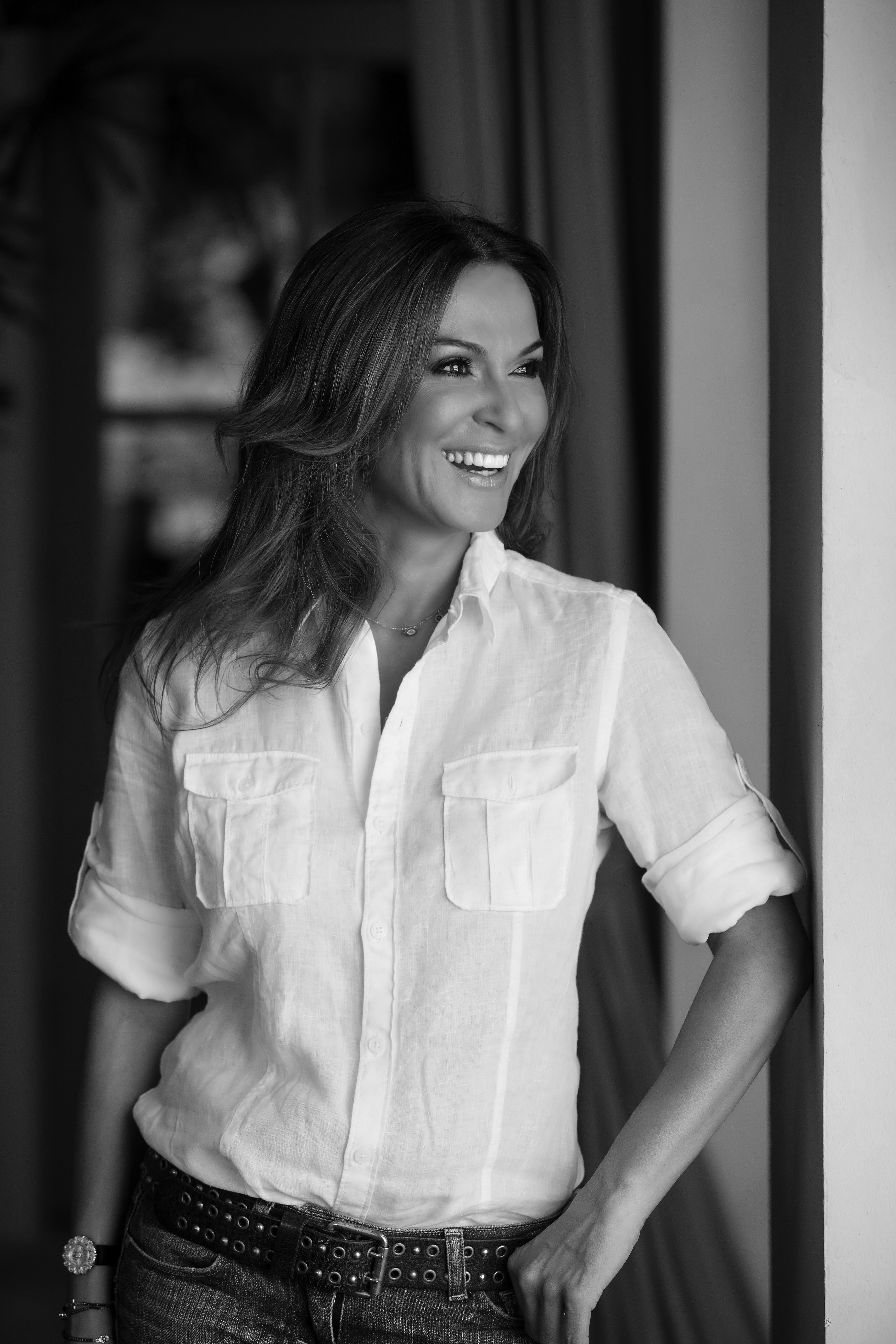



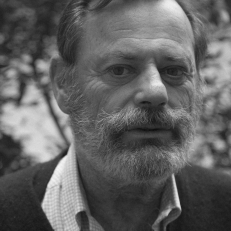
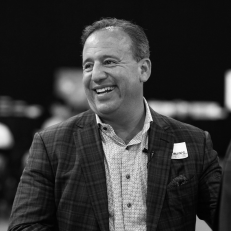
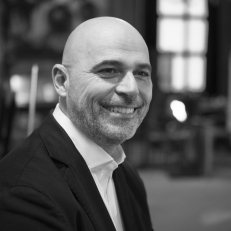
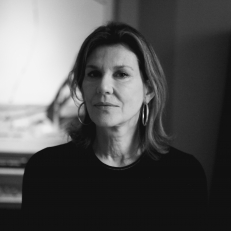
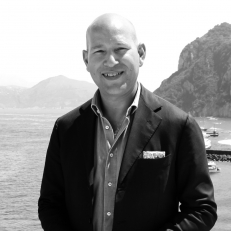
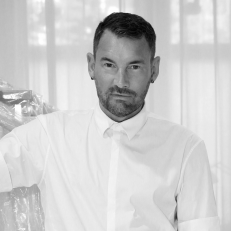
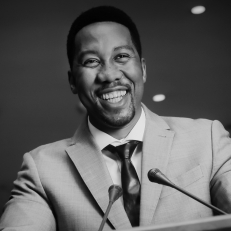
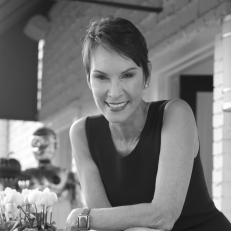
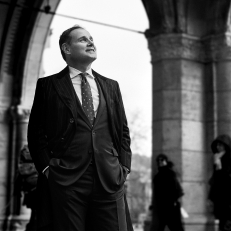
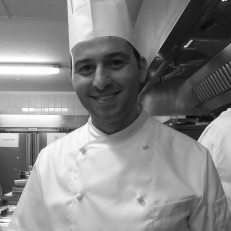


Add a comment